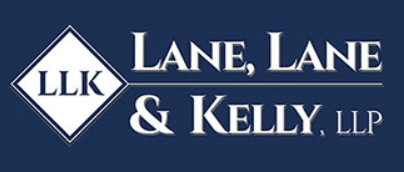In recent news, stories about apartments being occupied by unauthorized individuals, known as squatters, have highlighted the complexities and legal implications that can arise when unwelcome visitors try to make your property their home. Squatting is the act of unlawfully occupying property without the legal permission of the true owner. This can come in the form of someone squatting in an abandoned, unused property or at times a tenant that refuses to leave at the end of a lease. If you are a property owner, squatting can pose significant challenges that can lead to expensive and prolonged disputes. In this legal blog post, we'll explore squatter's rights in Massachusetts, the legal implications of squatting, and strategies for property owners to protect themselves against this issue.
What are Squatter's Rights?
Squatter's rights derive themselves from the legal doctrine of adverse possession. Adverse Possession is a legal principle that can allow an individual to obtain ownership rights of a piece of property if certain conditions are met. Adverse possession requires very strict elements be established. To succeed on an adverse possession claim, all of the below elements must be met:
- Open and notorious use that is visible and known to the true property owner
- Continuous use for the statutorily defined period
- Exclusive use of the property - meaning the adverse possessor is the only person using the land
- Actual use of the land – meaning that the land is being used for its ordinary purpose
- Non-permissive or hostile use – meaning the land is being possessed without the owner's permission (adverse to the owners interests)
- Lastly, all of the above elements must be met for 20 consecutive years in Massachusetts
It is important to clarify that squatting and adverse possession are distinct legal concepts. Squatting involves the unauthorized occupation of property. While adverse possession is a legal claim that the possessor would make to seek ownership rights through an action for quiet title after the above elements are met for twenty consecutive years.
Legal Implications of Squatting
Squatting is different than standard trespassing in the legal sense. A trespasser is someone who illegally enters private property, whether knowingly or unknowingly. Whereas a squatter intends to inhabit the property and remain there for an extended period of time. In Massachusetts, squatting is considered a civil matter rather than a criminal offense. This differs from trespass, which is a criminal offense. Trespassers have no right to use or occupy property and have entered the premises illegally. Thus, a property owner can call the police to report a trespasser, charge them criminally, and request them to be immediately removed. Whereas with squatting, the property owners cannot simply call the police to remove squatters from the premises. Instead, resolving squatting disputes requires initiating legal proceedings through the court system, which can be time-consuming, costly, and emotionally draining for property owners.
Protection Strategies for Property Owners
To protect yourself from squatters and potential adverse possession claims, consider implementing the following strategies:
- Regular Property Inspections: Conduct regular inspections of your property to identify unauthorized occupants or signs of potential squatting or trespassing. Look for any unusual activity both inside and outside of the building.
- Secure Vacant Properties: Keep vacant properties secure by installing locks, alarms, and security cameras to deter unauthorized entry. Whenever you get new tenants be sure to change all of the exterior locks to the building. Also ensure that any rental property, or property that goes unused during long periods of time has the proper security cameras setup around the entire grounds. This ensures that you can report any unusual activity immediately, as a trespass, rather than waiting until you discover the squatters days later.
- Monitor Property Use: Keep a lookout for signs of breaking and entering. Look for broken or unlocked windows, new trash or debris on the premises, noise complaints, or any personal belongings that someone has left.
- Get By With Some Help From Your Friends: Consider notifying all nearby neighbors when you will not be at your property and provide them with your contact information should any suspicious activity occur. When dealing with rental properties, consider hiring a third-party property management company that will handle all inspections on your behalf. Often property management companies will oversee the eviction process on your behalf to aid in the removal of any trespassers or squatters.
- Legal Documentation: Maintain clear property titles, lease agreements, and rental contracts to establish ownership and tenancy rights.
- Seek Legal Advice: Consult with a qualified real estate attorney to understand your rights and legal options for addressing squatting issues effectively and swiftly.
How to Evict Squatters
As discussed above, evicting squatters is a civil matter that requires a formal eviction notice to be served on the squatter. The process to evict a squatter is the same process that any landlord would utilize to evict a tenant. This process begins with the service of a “Notice to Quit.” This is a formal demand letter drafted by an attorney that gives the squatter a short time period (typically must be at least 14 days, often requires 30 days) to vacate the premises. This begins the formal eviction process as it officially puts the squatter on notice that they are unlawfully occupying the premises and must leave within the specified time period.
If they don’t leave after being served a notice to quit, the property owner must file a summary process lawsuit against them in the Massachusetts Housing Court or District Court and serve the squatter with an official eviction complaint. Once filed, the landowner will have to provide evidence that they are the lawful owner of the property (through a valid deed – click here to read about the different types of deeds in Massachusetts) along with evidence that the defendants are unwelcome and occupying the property illegally. This process can be lengthy, and at times takes several weeks or even months before a Housing Court Judge will make a decision. Once the Court rules in your favor, you will be given a Court Order, known as a "Writ of Execution." This Execution must be served by a constable or sheriff to evict the tenant/squatter and will typically grant them 48 hours written notice to vacate the premises. If they fail to vacate, then the constable or sheriff will return and peacefully remove the tenant/squatter from the premises, remove their belongings, and change the locks.
A word of caution – the serving of the Court Order Execution should never be done by the actual property owner. Instead, the property owner should coordinate with the local Sheriff’s department or with a certified Constable to aid in the peaceful removal of the squatters. We recommend coordinating with the Sheriff’s department, as this allows for armed officers to serve the Court Order and oversee the removal of the squatters along with all of their belongings.
A property owner should never attempt to remove the squatters themselves. This can result in conflict, and at times unnecessary violence that will only escalate the situation even further. This is known as “self-help” where the property owner attempts to take the law into their own hands rather than going through the proper legal channels for redress. Additionally, attempting to remove squatters through your own form of self-help will backfire, as self-help is illegal and can result in heavy fines and civil liability in its own right. One of the most common forms of self-help is changing the locks on a current or former renter, which is illegal and should not be done to avoid fines and civil liability.
Key Takeaways
Squatter's rights and unlawful occupancy pose significant challenges for property owners in Massachusetts. While squatting is not a criminal offense, property owners must take proactive measures to protect their rights and prevent adverse possession claims. By staying vigilant, maintaining legal documentation, and seeking professional legal guidance, property owners can mitigate the risks associated with squatting and safeguard their property interests.
At Lane, Lane & Kelly, our experienced real estate attorneys specialize in assisting property owners with legal issues related to squatting and adverse possession. Contact us today to learn more about your legal rights and options for protecting your property from unauthorized occupancy.
This blog is made available for educational purposes only as well as to give you general information and a general understanding of the law, not to provide specific legal advice. By reading this blog you understand that there is no attorney client relationship between you and Lane, Lane & Kelly, LLP.

Matthew B. Lane
Matthew is an Attorney at Lane, Lane & Kelly, LLP. Matthew attended Rensselaer Polytechnic Institute obtaining his undergraduate degree in Business & Finance in 2016, graduating with Magna Cum Laude honors, and later graduated from Suffolk University Law School in May 2025 with Cum Laude Honors. Matthew primarily practices in the areas of Estate Planning, Probate & Trust Administration, and Real Estate Conveyancing.


